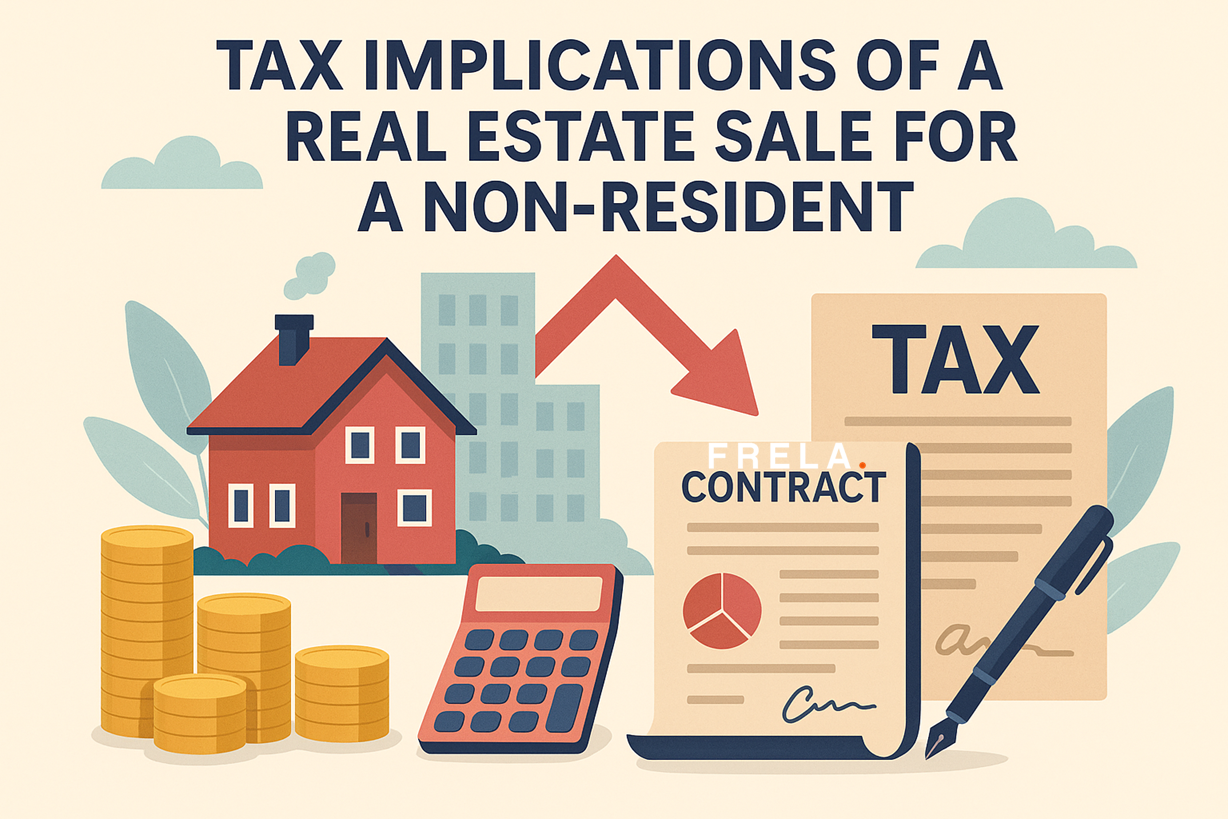Notary fees
Notary fees are costs inherent in any real estate transaction. They represent a sum that must be paid to the notary when signing the deed of sale. These fees may seem high, but they are necessary to protect the interests of the stakeholders.


Registration fees or land registration tax
Registration fees or land registration tax are fees collected by the notary when signing a deed of sale. Registration fees are a tax on the sale of real estate. The land registration tax is a tax paid to the Treasury at the time of signing the deed of sale and is intended to finance the expenses of the State, local authorities and municipalities.
The land registration tax represents a fraction of the sale price and must be paid by the buyer.
The land registration tax is calculated based on the value of the property and may vary depending on the geographical location of the property and the applied rate.
Normal rate
The land registration tax includes several elements, such as departmental registration fees, municipal tax and collection fees. The rate of departmental registration fees varies depending on the department, ranging from 3.80% to 4.50%. The municipal tax is set at 1.20% of the sale price, while the collection fees, which go to the State, are set at 2.37% of the amount of departmental registration fees. Each departmental council sets the rate of departmental registration fees for a period from June 1 of the current year to May 31 of the following year.
Reduced rate
The land registration tax applies at a reduced rate for the acquisition of a new or future property. In this case, a rate of 0.70% of the sale price will apply.
Fees and disbursements
Miscellaneous fees represent a small fraction of notary fees. Fees and disbursements are additional costs associated with the preparation of the file for the purchase of a property and may be considered as administrative fees. These fees are related to expenses that the notary must incur to prepare the deed of sale and may include fees related to the consultation of the land registry, land registration services, as well as fees related to urban planning documents, etc.
Notary compensation
Notary compensation is also included in notary fees. Notaries are legal professionals who have the power to validate legal acts. They are often considered neutral parties in real estate transactions. Notaries are responsible for drafting the deed of sale, verifying the legal status of the property and ensuring that the transaction complies with the law. Notary compensation is a payment due for notarial services provided. This compensation is regulated by the State because of the public interest function fulfilled by notaries. This regulation guarantees transparency and predictability of costs for individuals, particularly when buying a property. Thus, the calculation of notary fees is done in tiers:
- from €0 to €6,500: applicable rate of 3.870%
- from €6,500 to €17,000: rate of 1.596%
- from €17,000 to €60,000: 1.064%
- over €60,000: rate of 0.799%
Notary fees are necessary costs for any real estate transaction. Although these fees may seem high, they are necessary to cover the costs and responsibilities associated with a real estate transaction. It is therefore important to understand these costs and to choose a competent and reliable lawyer to ensure a successful real estate transaction.
About the Author :
Business lawyers, bilingual, specialized in acquisition law; Benoit Lafourcade is co-founder of Delcade lawyers & solicitors and founder of FRELA; registered as agents in personal and professional real estate transactions. Member of AAMTI (main association of French lawyers and agents).
FRELA : French Real Estate Lawyer Agency, specializing in acquisition law to secure real estate and business transactions in France.
Paris, 19 Rue du Colisee, 75008 Paris
Bordeaux, 78 Cours de Verdun, 33000 Bordeaux
Lille, 40 Theater Square, 59800 Lille

This article is provided for general information only and may not reflect the most recent legal or tax developments. It does not constitute legal advice. Please contact us for personalised guidance before making any decision.




